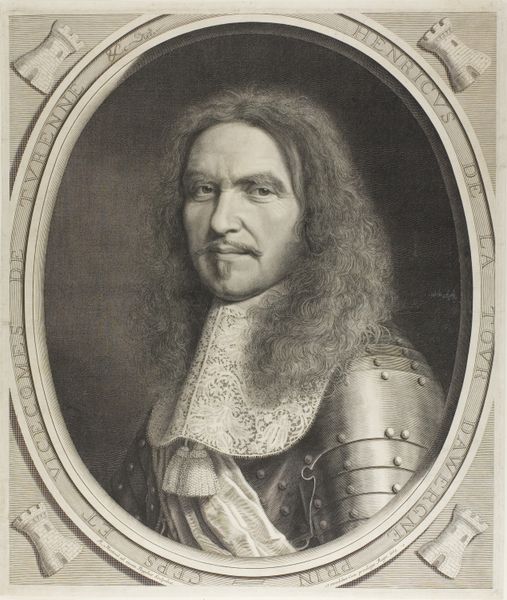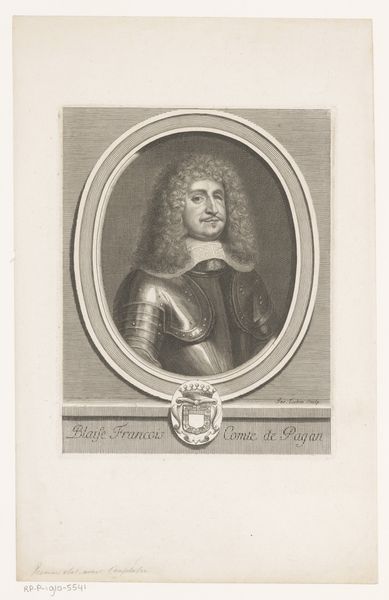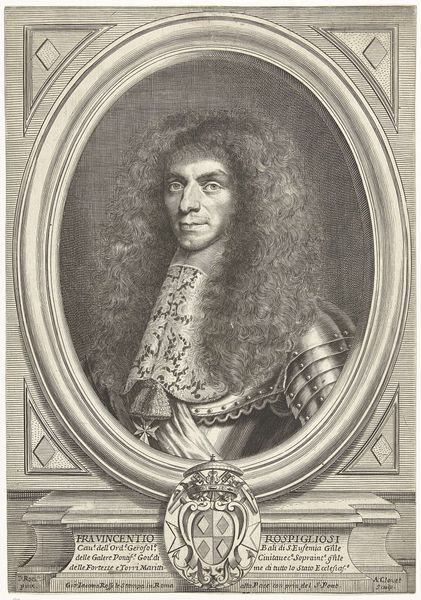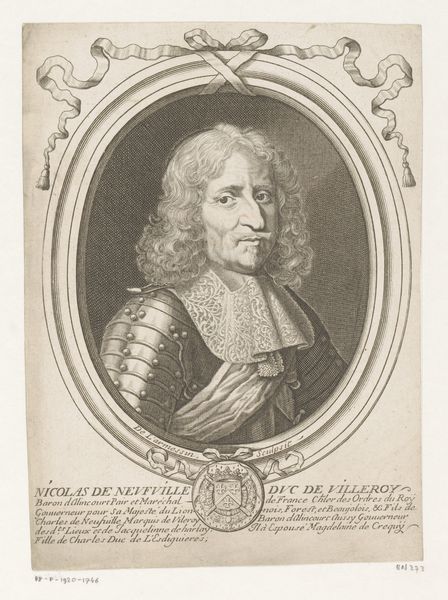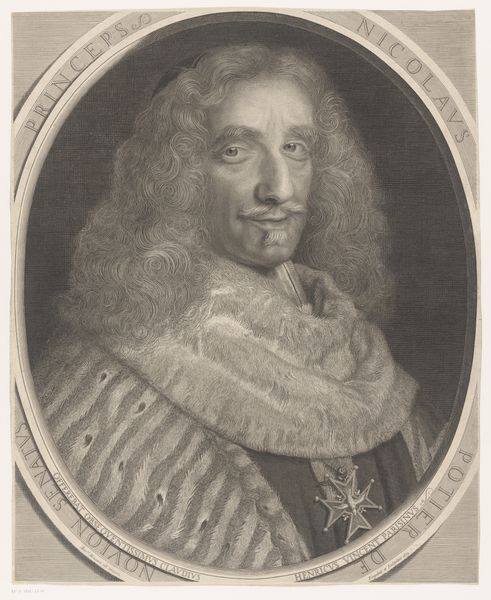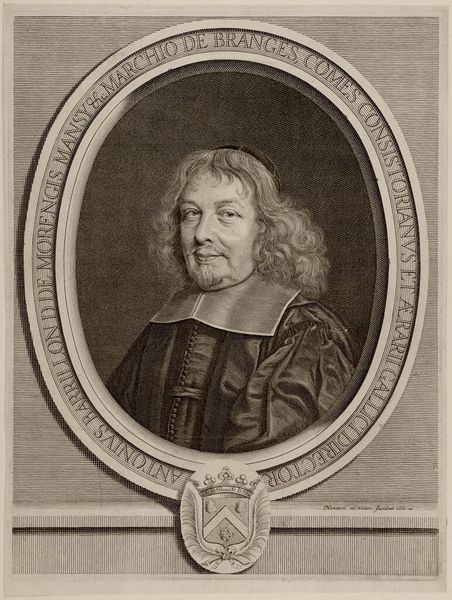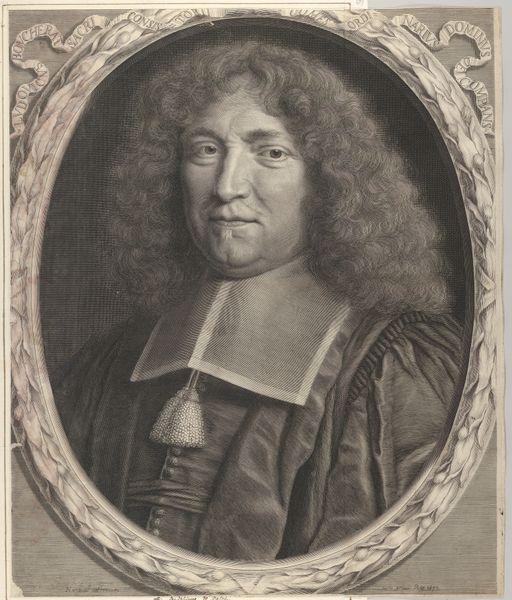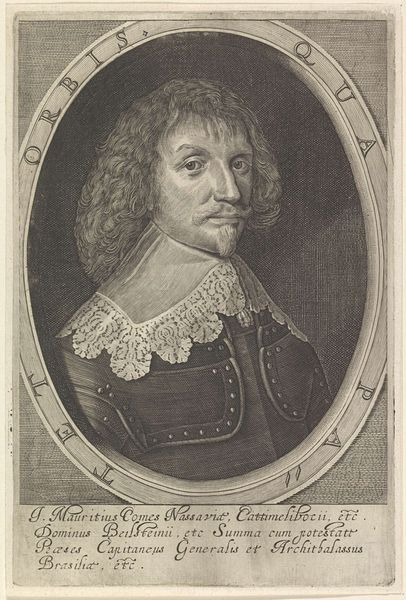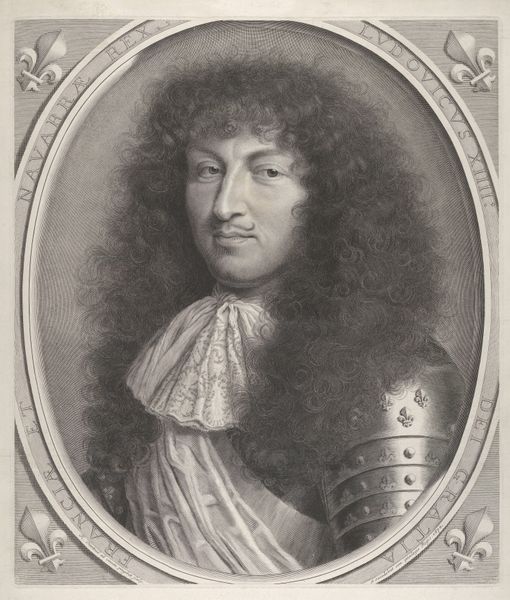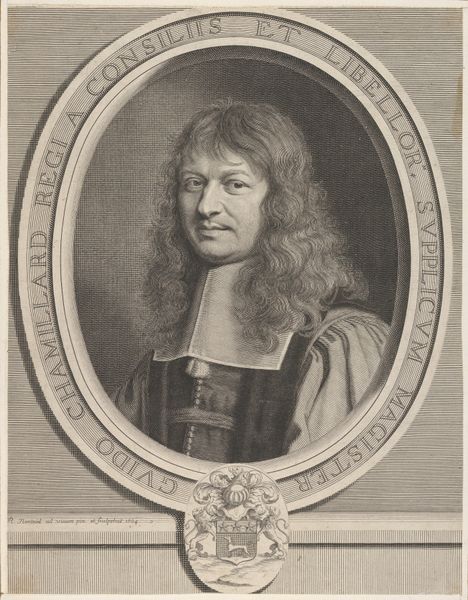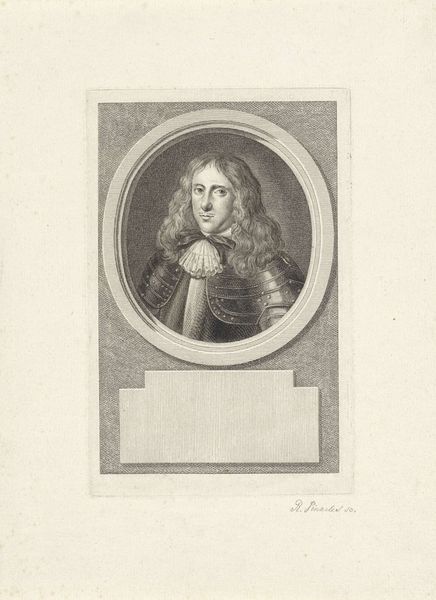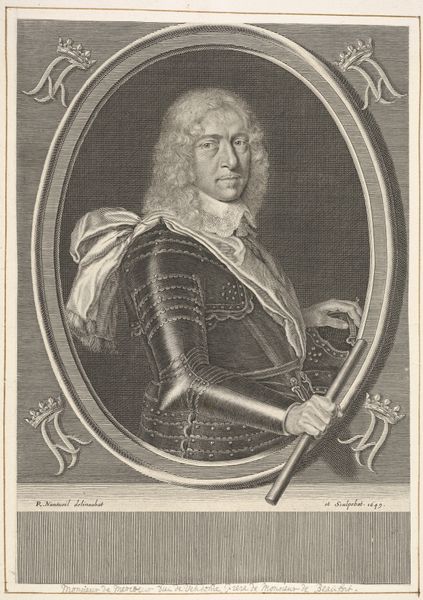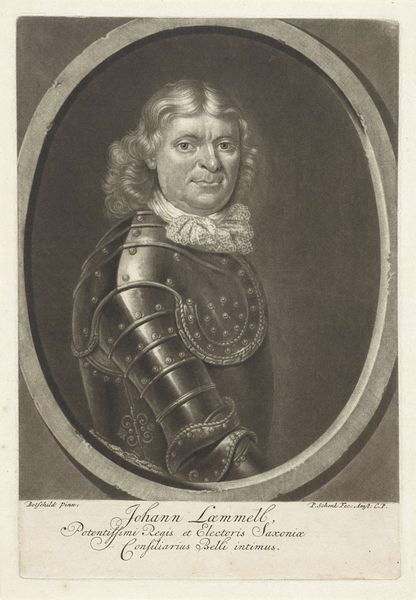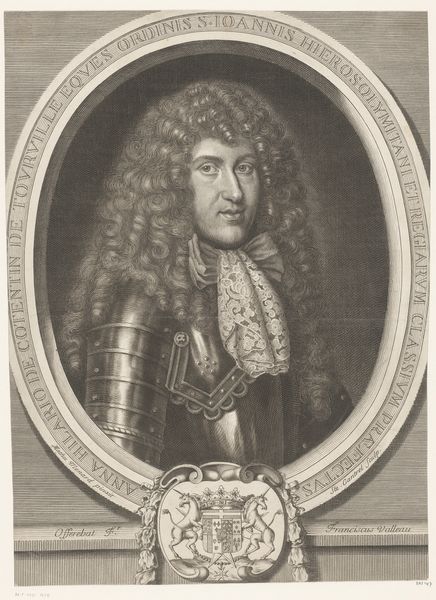
print, engraving
#
portrait
#
baroque
# print
#
charcoal drawing
#
figuration
#
pencil drawing
#
line
#
history-painting
#
engraving
Dimensions: height 494 mm, width 418 mm
Copyright: Rijks Museum: Open Domain
Curator: Today we’re looking at Antoine Masson’s 1669 print, "Portret van Henri de La Tour d'Auvergne." Editor: The immediate impression is power, but also a kind of melancholic world-weariness. The detail in the armor, juxtaposed with the softer textures of lace and hair, creates an interesting tension. Curator: Indeed. This engraving portrays Henri de La Tour d'Auvergne, a prominent military figure of his time. But it is also crucial to acknowledge that representations like these solidify hierarchical power dynamics and perpetuate historical narratives often omitting marginalized perspectives. Editor: And Masson’s material choices support that. Consider the technical skill required for the engraving process itself. The lines are so precise, rendering a near-photographic likeness. The act of production speaks to the status of both the sitter and the artist. This wasn't accessible art. Curator: Absolutely. This was during a period when printmaking served as a crucial tool for disseminating images of power and influence. The strategic deployment of such visual propaganda was aimed to forge a specific image and assert authority. We should consider, however, how La Tour d’Auvergne’s legacy might be viewed by those whose lives were impacted by his military actions. Editor: That tension you describe also stems from the material quality. The sharp lines almost feel industrial, forging a manufactured identity for the figure portrayed. Curator: We must remember that his individual portrayal occurs within a political and cultural milieu structured by patriarchal norms and social expectations which impact understandings of identity. The portrait simultaneously reflects and reinforces prevailing ideologies of its time. Editor: Thinking about it as labor, both La Tour d’Auvergne’s and Masson's craft contributes to shaping perceptions. It prompts the observer to analyze both historical significance and artistic means within these constructions. Curator: Ultimately, this portrait provokes essential conversations about how portraits of historical figures are fashioned and how that can solidify existing unequal power dynamics. Editor: By understanding the means by which this image was produced, we can analyze the deliberate craftsmanship embedded within its layered meaning.
Comments
No comments
Be the first to comment and join the conversation on the ultimate creative platform.
